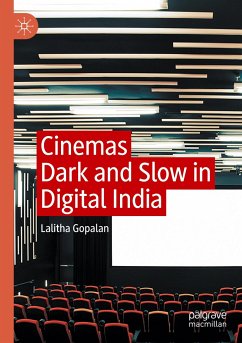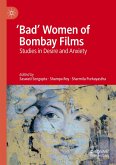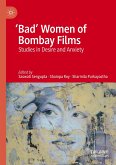This book provides a sustained engagement with contemporary Indian feature films from outside the mainstream, including Aaranaya Kaandam, I.D., Kaul, Chauthi Koot, Cosmic Sex, and Gaali Beeja, to undercut the dominance of Bollywood focused film studies. Gopalan assembles films from Bangalore, Chennai, Delhi, Kolkata, and Trivandrum, in addition to independent productions in Bombay cinema, as a way of privileging understudied works that deserve critical attention. The book uses close readings of films and a deep investigation of film style to draw attention to the advent of digital technologies while remaining fully cognizant of 'the digital' as a cryptic formulation for considering the sea change in the global circulation of film and finance. This dual focus on both the techno-material conditions of Indian cinema and the film narrative offers a fulsome picture of changing narratives and shifting genres and styles.
"Gopalan's book is a pioneering one for the area of Indian film studies, the first to formalise, historicise and aestheticise the advent of digital cinema in India in such a comprehensive manner. ... The author has taken up a monumental task, and very frequently while reading the book, I found myself wondering what a difficult book it must have been to research, collate and write." (Kaushik Bhaumik, BioScope, December 21, 2022)
"The bibliographies and filmographies that follow each chapter are among the book's outstanding achievements." (Samhita Sunya, Film Quarterly, Vol. 75 (2), 2021)
"The potency of this book's contribution comes from the way that it weaves together technological, industrial and philosophical concerns with a keen focus on the specificities of the historical and cultural contexts of film production in India. There is no doubt that readers will benefit from the persistent labours of this self-confessed cinephile and her thick network of connections across the independent filmmaking landscape in India." (Megan Carrigy, sensesofcinema.com, Issue 99, July, 2021)
"The bibliographies and filmographies that follow each chapter are among the book's outstanding achievements." (Samhita Sunya, Film Quarterly, Vol. 75 (2), 2021)
"The potency of this book's contribution comes from the way that it weaves together technological, industrial and philosophical concerns with a keen focus on the specificities of the historical and cultural contexts of film production in India. There is no doubt that readers will benefit from the persistent labours of this self-confessed cinephile and her thick network of connections across the independent filmmaking landscape in India." (Megan Carrigy, sensesofcinema.com, Issue 99, July, 2021)








